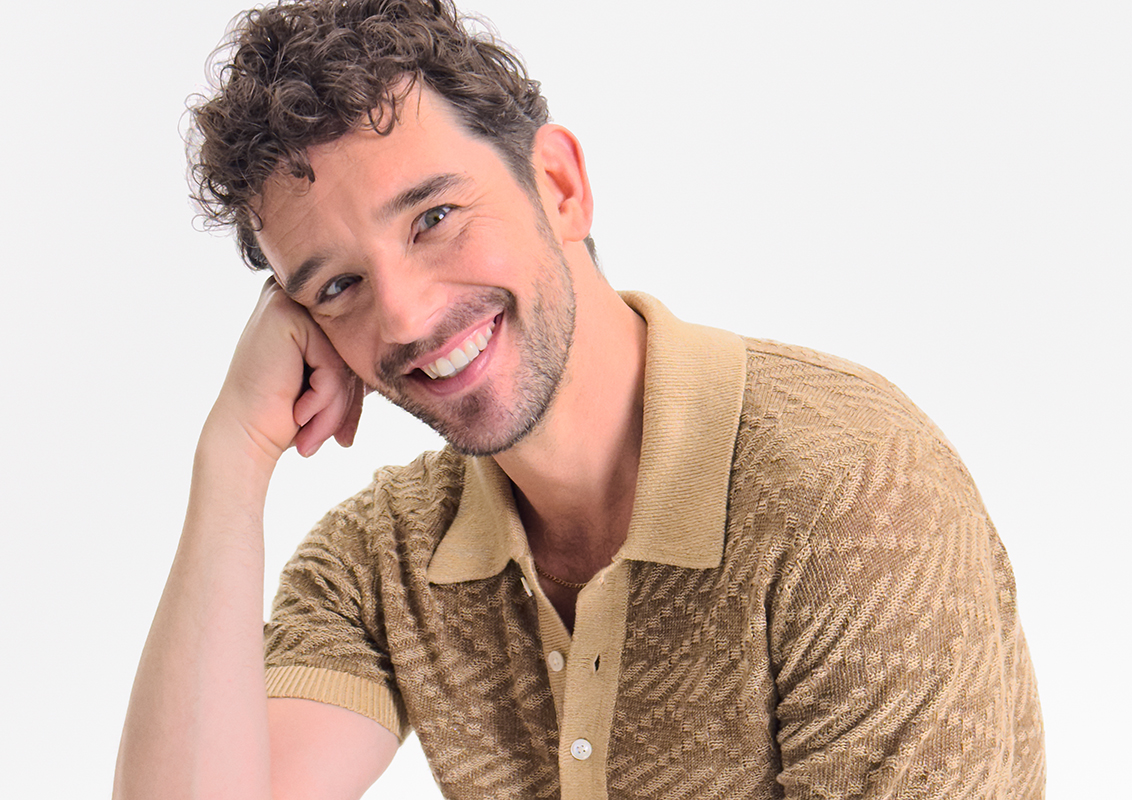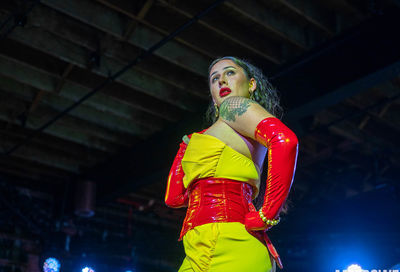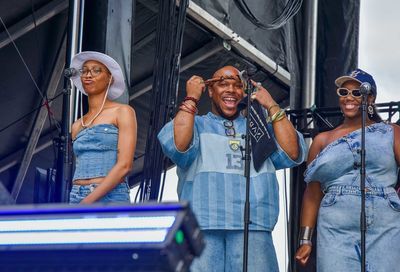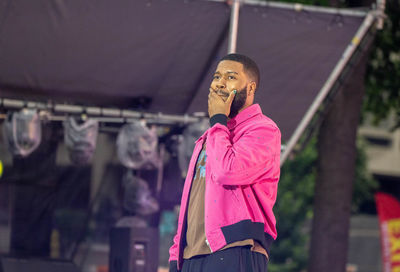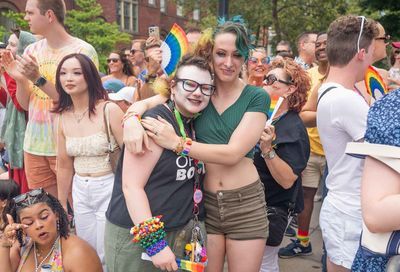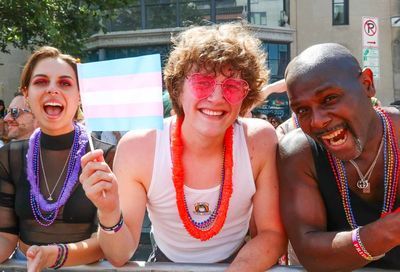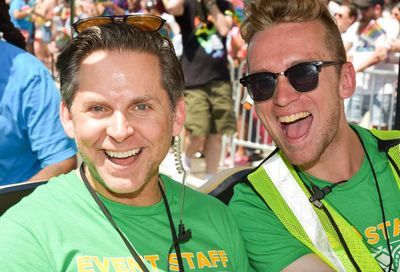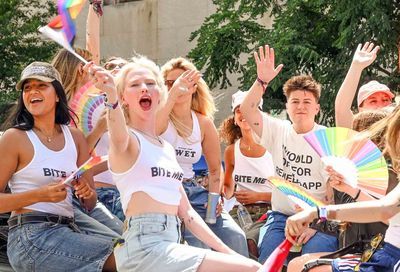D.C. GOP Commits to Full Slate
Republicans announce plan to fill empty post-primary slots with appointed candidates
The D.C. Republican Party announced April 7 that it intends to place candidates who did not declare their intentions prior to the party’s April 1 primary onto the general election ballot in November, potentially changing the dynamic in several local races, including the mayor’s race.
The D.C. GOP announced Monday that its chairman, Ron Phillips, advised the D.C. Board of Elections in March that the party would ”reserve its right to appoint a Republican candidate for any office for the General Election in the event that a Republican candidate for any such position does not participate in the April 1, 2014 primary election.”
Democrats ran at least one candidate in each of the 10 local or federal races that were on the April 1 primary ballot, in addition to various offices on the DC Democratic State Committee. Republicans managed to fill only two of 10 slots on the primary ballot, with Nelson Rimensnyder seeking the office of nonvoting delegate to the U.S. House of Representatives and Marc Morgan seeking one of two at-large seats on the D.C. Council.
Of the three officially recognized ”minority” – meaning non-Democrat – parties within the District, the Republicans fared the worst, as the Statehood Green Party managed to field four candidates for the April 1 primary, and the D.C. Libertarian Party managed to field candidates for seven of the 10 races.
According to the D.C. GOP’s statement, the D.C. Republican Committee, governing body of the D.C. Republican Party, will review potential candidates for mayor, D.C. Council seats and other positions and nominate them by vote to fill the ballot vacancies. All candidates must be reported to the Board of Elections by Sept. 8 to ensure placement on the November ballot.
”We look forward to vetting qualified candidates to appoint to various vacancies on the ballot this fall,” Phillips said in the Republicans’ statement. ”We especially look forward to joining the conversation and discussing issues that are important to the citizens of the District of Columbia, such as school choice, reducing the burden of regulations for small businesses, and the level of taxes in our community.”
Tamara Robinson, the public information officer for the D.C. Board of Elections, said the Statehood Green Party and the D.C. Libertarian Party also have the right to place candidates on the ballot in the general election if they wish to do so.
Perry Redd, an organizer for the Statehood Green Party, said his party is currently focused on the mayor’s race, where its official nominee, Faith Crannitch, on the ballot as ”Faith,” lost to a write-in candidate in the primary. Redd was, however, receptive to the idea appointing Green candidates in the Council chair’s race and individual ward races where the Greens did not field candidates.
Bruce Majors, the Libertarian Party’s mayoral nominee and the chief organizer of the local party, told Metro Weekly he’d heard of the possibility that Republicans would seek to appoint nominees after some of his slate’s candidates reached out to Republicans for support, only to be rebuffed. Majors said he assumed that the success of the Libertarians in recruiting candidates for most races on the ballot may have played a role in motivating Republicans to ramp up their recruiting efforts.
Majors was open to the idea of filling vacant spots with appointed candidates. He said that the Libertarians had organized a write-in campaign on behalf of Kyle Walker in the Council chairman’s race, and believed that Walker’s victory there would enable him to appear on the November ballot. Majors said he had trouble recruiting candidates who would firmly commit to running in Wards 1 and 5, but that this longer Sept. 8 timetable might be enough to fill the spots, adding that the nonpartisan D.C. Board of Education may also now be of interest to his party.
In his own race for mayor, Majors seemed unconcerned with the likely addition of a Republican in the race, noting there were 575 write-ins in the Republican primary for mayor, some of which may have been votes for Democratic Councilmembers Muriel Bowser (Ward 4) or Jack Evans (Ward 2) or Independent Councilmember David Catania (At-Large).
”If the Republicans run in the mayoral race, it will be very unclear who they’re pulling votes from,” Majors said. ”It probably doesn’t help me to have a Republican candidate, though it probably hurts David Catania more.”
Asked whether Republican candidates might make it easier for Democrats to win, should anti-Democratic votes be diluted, Robert Turner, executive director of the D.C. Republican Party, his party’s goal is simply to elect credible and competent Republicans to office.
”Neither Bruce Majors nor David Catania nor Muriel Bowser are Republicans,” he said. ”It is not our job to make their lives easier or worse. It’s our job to find credible Republican candidates and get them elected.”
Catania, who is already being attacked by Democrats who see him as Bowser’s biggest threat in her bid for mayor, likely has the most to lose from a Republican candidate’s entry into the mayoral race. But Catania has also worked on many typically Democratic initiatives, such as expanding health care for poor children, education reform and championing pro-LGBT legislation, which may make him more appealing to the District’s overwhelmingly liberal electorate.
A spokesman for the Catania campaign declined to comment.
Besides the mayoral race, other contests that could be influenced by the entry of appointed Republican candidates are the D.C. Council chair race against incumbent Phil Mendelson (D) and the Ward 3 and Ward 6 races, where Libertarians Ryan Sabot and Pranav Badhwar are challenging, respectively, incumbent Democratic Councilmember Mary Cheh and Democratic nominee Charles Allen, a former staffer for Councilmember Tommy Wells (D-Ward 6).
Even if all three parties – Republicans, Greens and Libertarians – were able to recruit enough candidates to fill out the remainder of their slates, there may be even more candidates to come. Independent candidates may join any of the 10 races, as well as for four ward-specific races for the D.C. Board of Education, as long as they declare themselves by June 13, and collect a requisite number of signatures by Aug. 6.
In past years, several former Democrats, most notably former Councilmember Michael Brown and current Councilmember David Grosso, disaffiliated from the Democratic Party and ran as independents in order to seek at-large seats on the D.C. Council. Under District law, at least two of the Council seats must be reserved for non-Democrats. An entry by a former Democrat into the at-large race as an independent could hamper the chances of Republican nominee Marc Morgan, Statehood Green nominee Eugene Puryear, and Libertarian nominee Frederick Steiner. Incumbent At-Large Councilmember Anita Bonds, as the Democratic nominee, is widely expected to grab the first at-large seat, which is typically held by a Democrat.
Support Metro Weekly’s Journalism
These are challenging times for news organizations. And yet it’s crucial we stay active and provide vital resources and information to both our local readers and the world. So won’t you please take a moment and consider supporting Metro Weekly with a membership? For as little as $5 a month, you can help ensure Metro Weekly magazine and MetroWeekly.com remain free, viable resources as we provide the best, most diverse, culturally-resonant LGBTQ coverage in both the D.C. region and around the world. Memberships come with exclusive perks and discounts, your own personal digital delivery of each week’s magazine (and an archive), access to our Member's Lounge when it launches this fall, and exclusive members-only items like Metro Weekly Membership Mugs and Tote Bags! Check out all our membership levels here and please join us today!










